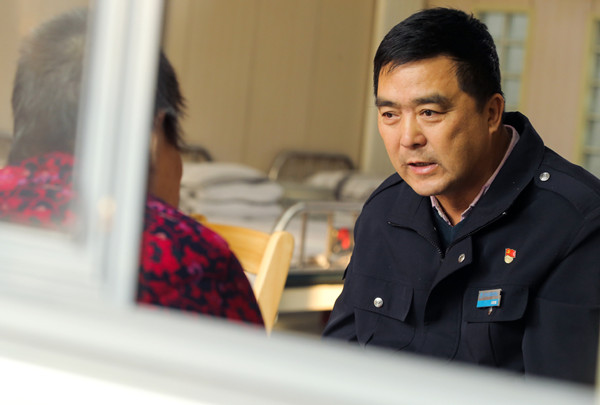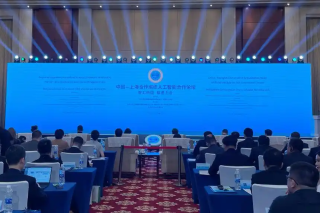Listening to the 'lost people'

Yan Shiwei (right) talks with a lost person at the Tianjin Rescue Management Station. [Photo/China Daily]
Over the past 32 years, Yan Shiwei has helped 4,000 "lost people" find their way home by identifying a wide range of regional dialects and words.
The 59-year-old, who works for the Tianjin Civil Affairs Bureau's rescue management station, has been given a number of awards for his work performance in recent years, including the May 1st Labor Medal.
Zhao Qiuju, executive director of the station, said during the COVID-19 pandemic earlier this year, Yan worked with his colleagues to help 92 people return home.
The majority of lost people the station assists are either illiterate, homeless or have mental and physical disabilities. Often they suffer from a combination of several of these conditions.
"Over the past 30 years, I have tried my best to recognize and locate people's hometowns based on their features and gestures as well as their dialects," Yan said.
For example, people from the northeast usually have strong accents and are taller and more solid than people from the south.
However, picking up differences can be more nuanced. Even though Tianjin and Tangshan are close to each other, their residents have different ways of asking "why?", while the same question posed by people from the northeast uses words unique to the region, he said.
Yan's co-workers said he has built up a knowledge bank of regional accents, which is the main reason he is so successful in locating lost people's hometowns.
"Yan has a strong recall of a number of Chinese local dialects, just like a dialect expert in a linguistics department," one co-worker said.
Looking for clues
A common problem Yan has to solve is helping lost illiterate rural people who can only remember relatives' nicknames or identify areas by colloquialisms.
One time, a woman could only recall her daughter's nickname. However, she spoke with an unusual accent, and Yan successfully deduced she was from somewhere near Liqizhuang township in Tianjin.
Yan said someone's facial characteristics can also help him make an educated guess as to where that person is from.
He once helped a man with mental disabilities who struggled to provide any useful clues where his home was. All he told the rescue station staff was that he lived in a place called Zhangtun village. Yan said from the man's facial features he had a hunch that he was from Shandong province.
Yan searched online for Shandong villages named Zhangtun, but it was a common name. He persisted, and asked the lost man if he could remember the name of a nearby village to which he replied "Wangji". That narrowed Yan's search down to two locations and the man was eventually returned home.
"I have been trying to remember more local names and enrich my knowledge of geography and local dialects, habits and customs," he said.
"When we succeed in helping these people find their homes, I feel very delighted. Other times, when I'm stuck because of a shortage of clues, I think it's my love of the work that inspires me to go on."
In recent years, facial recognition technology and tracing people via online platforms have played a major role in helping lost and missing people reconnect with their families. Zhao said that improvements to the social security system in China also meant it is less likely people end up lost and on the streets.
The Tianjin Rescue Management Station has in recent years helped more than 400 lost people find their way home or reconnect with relatives every year.
The station also provides testing and quarantine services for people in need suspected of having COVID-19. A man, surnamed Hao, was sent home to Linqing, Shandong, during the pandemic.
"I have lived away from home for 12 years and the pandemic made my life more difficult," he said.
"I was enormously excited that I could be sent to my home in Linqing. I really can't express my gratitude to the station's staff members enough."

Copyright ©
Tianjin Municipal Government. All rights reserved. Presented by China Daily.
京ICP备13028878号-35



